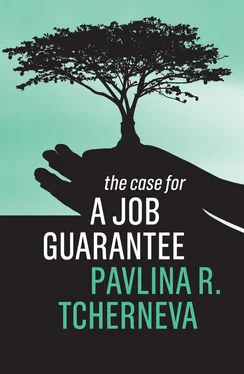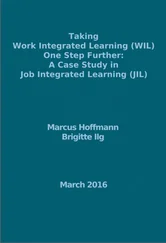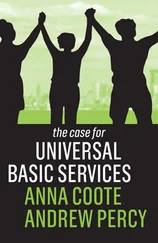The Job Guarantee deals with two very specific aspects of economic insecurity: unemployment (intermittent or long-term), and poorly paid employment (precarious and unequal). There are other labor market problems such as wage theft, discrimination, poverty, and stagnant income growth. And there are other forms of economic insecurity too, such as the lack of affordable and high quality food, care, housing, and education, or a lack of protection from the ravages of climate change. While, in a certain sense, the Job Guarantee has a narrow and clear mission – to provide a decent job at decent pay to all jobseekers who come a-knocking – by its very nature and design it addresses a wide range of social and economic problems and helps deliver a fairer economy.
At bottom, the Job Guarantee is a policy of care, one that fundamentally rejects the notion that people in economic distress, communities in disrepair, and an environment in peril are the unfortunate but unavoidable collateral damage of a market economy.
The idea of using public policy to guarantee the right to employment is not new. Its long life and resilience stem from its deep moral content. It was affirmed in the Universal Declaration of Human Rights and in President Franklin Delano Roosevelt’s proposed Economic Bill of Rights, it was a signature issue in the struggle for civil rights, and it is etched into many nations’ constitutions (inspired by the Universal Declaration). But its mandate remains unmet. In the US, the architects of the 1946 Employment Act and the 1978 Full Employment and Balanced Growth Act tried, but ultimately failed, to implement appropriate legislation to secure it. In the absence of a universal right to work, intermittent direct employment programs around the world have attempted, however imperfectly, to fill the void, many with perceptible success.
Today, the Job Guarantee has been hailed as “the single most crucial aspect of the Green New Deal,” 1conveying that environmental justice cannot be delivered without economic and social justice. The Green New Deal and the Job Guarantee aim to resolve two seemingly distinct, but in fact organically inseparable, existential problems – those of climate change and economic insecurity. What good is a green future in which the dangers of global warming have abated, but families and whole communities continue to experience deaths of despair due to poverty, unemployment, and economic distress? And what kind of an economy would it be which made well-paid jobs available to all, but continued to exploit and devastate the natural environment on which we vitally depended?
Although the Job Guarantee predates the Green New Deal, it has always been green – from the days of Roosevelt’s Tree Army to modern proposals like the one outlined in this book – prioritizing environmental conservation and community renewal. The Green New Deal is an ambitious policy agenda designed to transform the economy and deliver a habitable planet to future generations. The Job Guarantee embeds economic and social justice into the scientific response to climate change; it is an indispensable part of the green agenda that would ensure that no one would be left behind in the transition. But it is also a transformative macroeconomic policy and safety net that would tackle decades-long labor market problems along with the dislocations that would emerge from the greening process. Put simply, the Job Guarantee ensures that, while we work to protect the environment and transform the economy, we have a policy that protects working people and transforms the work experience itself.
This book presents the Job Guarantee proposal and explains why it is critical to the climate movement. It also contends that, even after the Green New Deal has fulfilled its mission, a market economy would still require a Job Guarantee. This is because the program serves as an ongoing shock absorber and a powerful tool for economic stabilization, which is perhaps its most critical macroeconomic feature. It was absent in the era of industrialization, when paid work became the indispensable yet unreliable ticket to securing a livelihood. It was missing in the postwar era, when economic depressions were banished but unemployment was not expelled along with them. And it is lacking today, when neoliberal policies have weakened core worker rights, while policy makers stabilize prices on the backs of the unemployed. The Job Guarantee is a policy that was needed well before we irreversibly polluted the environment, and it is one that will still be necessary after we have cleaned it up.
The vision for the green Job Guarantee articulated here connects job creation to environmental conservation. It also defines green policies as those that address all forms of waste and devastation, including and especially those of our human resources. A green policy must remedy the neglect and squander that come with economic distress, unemployment, and precarious work in particular. As the late Nobel Prize winning economist William Vickrey argued, unemployment is “at best equivalent to vandalism,” bringing an unconscionable toll and ruin on individuals, families, and communities. 2Yet conventional wisdom considers unemployment to be “normal.” Economists even call it “natural” and devise policies around some “optimal” level of joblessness.
The idea that involuntary unemployment is an unfortunate but unavoidable occurrence, and that there is an appropriate level of unemployment necessary for the smooth functioning of the economy, is among the great, unexamined myths of our time. It is also bad economics.
To make the case for the Job Guarantee policy, the book begins with a thought experiment before moving on to the diagnosis and economic analysis. It asks the reader to imagine what the Job Guarantee policy might look like in very practical terms and the impact it might have on unemployed people and their families. We consider under what circumstances someone might need to access the program and what kinds of projects could ensure that they would always walk out of the unemployment office with a basic living-wage job offer.
The reason for this approach is that unemployment has become far too abstract and paradoxically impersonal. Few things are as personal as losing one’s job, and yet most economists and policy makers talk about unemployment much like meteorologists talk about the weather. Unemployment is treated as if it were a natural occurrence, about which governments can do little beyond providing temporary protection like unemployment insurance. Millions might have to endure joblessness as the economy slogs through a prolonged recession, but when the weather clears unemployment will dissipate again. Still, the inevitable drumbeat of globalization and technological change dictates that some people will necessarily stay (structurally) unemployed. Or so the story goes.
Unemployment is thus de-personified and internalized as a tolerable natural occurrence in a globalized world. It has become common to personify it only when unemployed people are blamed for their own lot – another myth this book aims to debunk. When economic conditions are favorable, unemployment and poverty are often believed to be the result of poor initiative (jobseekers have not upgraded their skills), or some other individual moral failing (substance abuse, criminal record, “bad choices” of one kind or another). Unemployment is thereby reanimated, but not humanized.
Some readers may share this view and it is hoped that this book will change their minds. Even in the best of times, decent job opportunities are in short supply for a great many people, due to stacked circumstances beyond their control. The consequences are devastating, yet largely avoidable. The questions I want to raise are these: What if we devised a system that – rain or shine, “moral failings” or not – guaranteed job opportunities to anyone who wanted to work, irrespective of their experience, training, or personal situation? What would such an economy look like? Would the sky fall? Would it create economic conditions and consequences worse than the ones we already face? Or would it usher in a great many benefits that we may not have considered before? Would a world with a public option for jobs be any worse than one in which even the “good economy” leaves millions without decent employment? Or would it provide a new basis for economic security and stability?
Читать дальше












